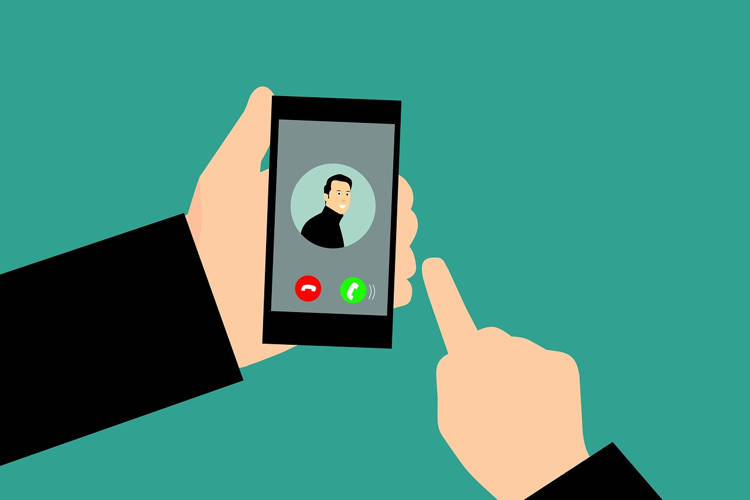“Remote cohabitation” has become a hot topic in Japan over the past couple of days, after a popular TV show reported that young couples prefer to live separately and keep in touch using free video call apps.
On July 21st, TV Asahi’s ” Hatori Shinichi Morning Show” featured remote cohabitation as a growing trend among young Japanese couple who either prefer or are forced to live separately. It involves the use of free video call apps like Line or Skype to keep in touch for hours on end, even all through the night. A couple used as an example during the show, said that they leave the app open during the night so they can “wake up together”, and only turn it off when they are at work. This way they feel like they are together, even though one lives in Tokyo and the other in Ibaraki Prefecture.

Photo: mohammed_hassan/Pixabay
Remote cohabitation doesn’t require constant conversation; the two partners don’t even have to interact, they can just go on with their respective schedules, but leaving the call app turned on during that time makes them feel connected. Simply hearing the sounds of the other person’s activity, such as a hair dryer, doing the dishes or watching TV reportedly makes couples feel better.
One of the advantages of remote cohabitation is independence. The couple doesn’t feel pressured to do what the other person wants to do, they can each follow their own routines and still feel close to each other. Some even watch movies together, or have dinner together this way. Having “invisible company” constantly and still be able to enjoy their time freely is said to “kill two birds with one stone”.
本日7/21放送「若者の間で広がる“リモート同棲”」
恋人同士で、長時間、無料電話を繋ぎっぱなしにして生活する“リモート同棲”が、若者の間で広がっています。 pic.twitter.com/6mnp7oIAKH— 羽鳥慎一モーニングショー (@morningshow_tv) July 21, 2021
Remote cohabitation had been apart of Japanese culture for a while now, but the Covid19 pandemic only made it more popular, as the restrictions put in place by the authorities forced even more people into living separately, and looking for ways to stay connected.
While remote cohabitation sounds like a welcome way to keep long-distance couples connected during the pandemic, it has received negative feedback from both the general public and relationship experts, many of whom consider the trend as a form of surveillance.
これほど長い通話時間で、何をしているのかというと、その日の出来事を話したり、一緒にご飯を食べたり、同じテレビを見るといいますが、多くの時間は無言で自分の好きなことをして過ごしているそうです。 pic.twitter.com/Eaq4iuQrcE
— 羽鳥慎一モーニングショー (@morningshow_tv) July 21, 2021
“I think it’s good when you’re starting out and you’re in love, but as those feelings gradually fade away, I think that the constant connection will lead to a breakup,” TV Asahi commentator Toru Tamagawa said. “I think the relationship will end up in a surveillance-like state.”






